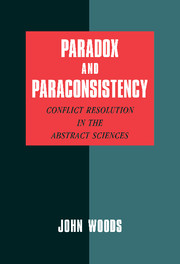7 - Currying Liars
Published online by Cambridge University Press: 05 June 2012
Summary
ANALYTIC INTUITIONS
It would be naive to underestimate the attraction exerted by the role of intuitions in the lives of theories. Whatever else they are, intuitions are beliefs strong enough to carry epistemological presumptions. Of course, this is precisely what strong belief is structural for, since a belief has its strongest hold on a subject when it is a belief in the form “I know that ф.” There is no doubting that intuitions are strong beliefs pretending to epistemological status. Intuitions have the force of what Peirce called the “Insistence of an Idea.” What is not so clear, as Chapter 5 tried to show, is whether the epistemological presumption of intuitions is warranted.
There is more than one way of trying to make methodological use of what Peirce calls the Insistence of an Idea. The most important of these ways will be examined in the chapter to follow, and found wanting. It is the business of the present chapter to reflect on one of the ways of making methodological use of “our” intuitions. It is what I have been calling the method of analytical intuitions, used with differential affect by Frege, Russell, and Tarski. I am going to concentrate on points on which all three were in accord, without which they could not have thought Freg's Sorrow an appropriate reaction to Russell's Paradox or Koryé's Sorrow an appropriate reaction to the Liar Paradox.
- Type
- Chapter
- Information
- Paradox and ParaconsistencyConflict Resolution in the Abstract Sciences, pp. 228 - 276Publisher: Cambridge University PressPrint publication year: 2002



